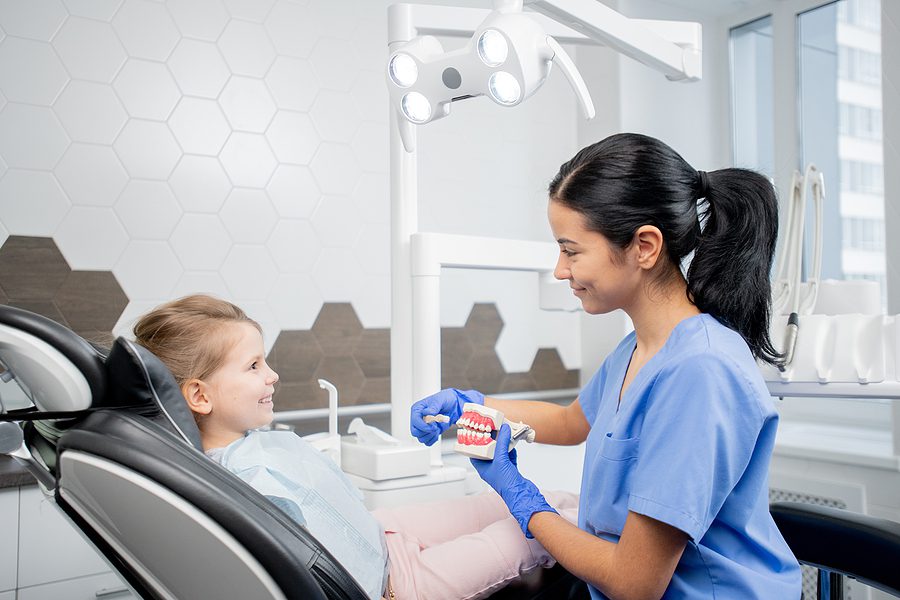The Path to Becoming a Certified Dental Assistant
A career in dental assisting is an appealing path due to its stability, quick entry into the workforce, and versatility in work settings. Providing hands-on patient interaction and fostering collaboration within the dental healthcare team, dental assistants enjoy a dynamic role with continuous learning opportunities and avenues for professional advancement. Obtaining certification adds formal recognition to your skills, contributing to job satisfaction as you positively impact patients’ oral health. With a diverse range of tasks, dental assisting offers a fulfilling career that can also serve as a gateway to further opportunities in healthcare, making it an attractive choice if you’re seeking a rewarding and impactful profession.
Becoming a certified dental assistant is an exciting and rewarding endeavor. Dental assistants play an essential role in the dental healthcare team, providing support to dentists and ensuring a smooth patient flow in dental offices. In this comprehensive guide, we will explore the various steps and milestones on the path to becoming a certified dental assistant.

Understanding the Role
Before discussing the specifics of certification, it’s important to have a clear understanding of what your role will be as a dental assistant. Dental assistants help with patient care, sterilize instruments, take X-rays, and perform some administrative tasks. Their versatile skill set makes them indispensable members of the dental team, contributing to the overall efficiency and success of a dental practice.
Educational Requirements
To become a certified dental assistant, you will typically need to complete a formal education program. These programs are offered by community colleges, vocational schools, and dental assistant schools. The duration of these programs varies but often ranges from nine months to two years. Prospective dental assistants can choose between diploma, certificate, or degree programs, depending on their career goals and preferences.
Selecting an Accredited Program
When choosing a dental assistant program, it is beneficial to select one that is accredited by the Commission on Dental Accreditation (CODA). Accreditation ensures that the program meets established standards for dental assistant education, providing students with a high-quality and industry-recognized education. Checking the accreditation status of a program is an important step in ensuring that the education you receive is reputable in your field.
Curriculum Overview
Dental assistant programs cover a comprehensive curriculum that includes both theoretical knowledge and practical skills. Students learn about dental anatomy, radiography, dental materials, chairside procedures, and infection control. Additionally, most programs include hands-on clinical experiences and internships where students can apply their knowledge in a real-world dental office setting. This combination of classroom and practical learning equips aspiring dental assistants with the skills necessary to excel in their career.
Gaining Practical Experience
Hands-on experience is an essential aspect of dental assistant education. Many programs include clinical rotations or internships that allow students to work in dental offices under the supervision of experienced dental professionals. This practical experience not only reinforces classroom learning but also provides students with valuable insights into the day-to-day responsibilities of a dental assistant. It is during these experiences that students can develop their chairside skills, interact with patients, and become familiar with the dynamics of a dental team.
Completing Certification Requirements
While certification requirements can vary by state, many dental assistants choose to pursue certification through the Dental Assisting National Board (DANB). The Certified Dental Assistant (CDA) credential is widely recognized and demonstrates a dental assistant’s commitment to professionalism and excellence. To earn the CDA credential, candidates need to pass the DANB’s national certification exam, which assesses their knowledge in areas such as general chairside assisting, infection control, and radiation health and safety.
Preparing for the Certification Exam
Preparation for the DANB’s certification exam is an important step on the path to becoming a certified dental assistant. Review courses, study materials, and practice exams are valuable resources that can help candidates familiarize themselves with the exam format and content. Many dental assistant programs also include exam preparation as part of their curriculum to ensure that students are well-prepared for success.
Continuing Education and Specialization
Once certified, dental assistants have the opportunity to further advance their careers through continuing education and specialization. The dental field is dynamic, and ongoing learning is essential to stay abreast of advancements in technology, procedures, and best practices. Dental assistants can pursue additional certifications in specialized areas such as orthodontics or expanded functions, enhancing their skills and increasing their marketability.
Joining Professional Associations
Becoming a member of professional dental assistant associations, such as the American Dental Assistants Association (ADAA), provides numerous benefits. These associations offer networking opportunities, access to industry publications, and a platform for staying informed about legislative changes affecting the profession. Joining a professional association can also contribute to a sense of community and provide support throughout one’s dental assistant career.
Seeking Employment
With certification in hand and a solid educational foundation, certified dental assistants are well-prepared to enter the workforce. Job opportunities for dental assistants exist in various settings, including private dental practices, clinics, and specialty offices. Networking, utilizing career services offered by educational institutions, and exploring job boards are effective ways to connect with potential employers and secure a rewarding position in the field.
Becoming a certified dental assistant is a fulfilling journey that requires dedication, education, and a commitment to ongoing professional development. Through accredited education programs, practical experiences, and successful completion of certification exams, individuals can enter the dental field equipped with the skills and knowledge needed to thrive. The path to becoming a certified dental assistant is not only a gateway to a rewarding career but also a contribution to the overall health and well-being of your community. To learn more about our comprehensive dental assistant training program, contact South Florida Dental Assisting School today!
